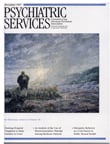Skeptics are a dime a dozen, but levelheaded, clear, and deeply well-informed skeptics are essential to the progress of science. Jerome Kagan's new book, Three Seductive Ideas, vigorously helps to clarify and undermine three widespread, appealing, and often wrong ideas. All three are vital to psychiatry and psychology and are basic enough to be widely silently accepted, creating a significant amount of confusion and nonsense, pseudoscience, and dubious underpinnings for much of what we psychiatrists, psychologists, and many others believe and do.
"The first flawed belief," Kagan says, "is that most psychological processes generalize broadly …. The first words chosen to name natural phenomena are always too general." Many people "believe it is not terribly important to specify the agent being studied, whether rat, monkey, or human. … Instances of this loose thinking can be found in every technical journal."
Kagan, who has for decades been a world authority on human development, tests—and finds major trouble with—our wish and tendency to overgeneralize and abstract. He does so by studying in some detail four popular but controversial psychological concepts: fear, consciousness, intelligence, and temperament.
He usefully subdivides and defines various fears, anxieties, and angers in different subjects and contexts—biologically, psychologically, and socially. He also repeatedly identifies reasons for the tendency to overgeneralize. His scope is wide ranging, and he is historically and biopsychosocially informed about meanings of consciousness and of intelligences (referring to, for example, Binet, Simon, Spearman, Thurstone, Wechsler, Gardner, and many others). He has contributed well-known research on temperament, and in his discussion he ranges easily from animals to children to scientists and philosophers. Having for several decades been somewhat intimidated by Kant and his "Ding an sich" ("the thing itself," or "the pure essence of a thing"), I was pleased to read Kagan's citing, in useful context, the philosopher Hilary Putnam, who said that "when we talk of 'Ding an sich' we do not know what we're talking about."
Kagan's second seductive premise "favored by those who study human behavior" is infant determinism, which holds that some experiences during the first few years of life are preserved indefinitely, or are decisive, or are major contributors to the person's future. Here, as in his discussion of the third seductive idea—the pleasure principle, to which he opposes an interesting definition of virtue—Kagan seems to me somewhat to overstate his very educated case. He makes several issues unrealistically black or white, perhaps as part of an agenda fairly specifically to dismiss psychoanalysis and at least two of its central conceptual pillars.
Kagan occasionally quotes Freud (although he seems actively to prefer Darwin, as if one had to make a choice), but he hardly even mentions psychoanalysis. To my mind, Kagan's remarkably rich thinking would be richer still if he had integrated more clinical experience and theory, including psychoanalytic work and specifically including feelings, conflicts, "irrational" motivation, interpersonal dynamics, and the unconscious. He does on occasion refer to some of those areas as hard to quantify, but he confronts them less than he might usefully have done.
However, some of Kagan's scientific questions, whether or not quarrelling with psychoanalysis, are pithy and necessary, such as what precisely in later life does what in infancy predict? If we do not define such areas better, we will remain in scientific trouble.
Kagan suggests a moratorium on "free-floating words like fear, learn, approach, altruism, avoid, and regulate." He suggests that data based on only one of what he considers the three usual psychological avenues of explanation—verbal statement, observed behavior, and physiologic measurement—will lead to limited understanding, and he urges using a "plenitude of procedures." Various sources of evidence should be combined. "Very few useful biological categories are defined by one feature or dimension," he says. Kagan also suggests, and sometimes insists—as a famous psychological researcher and teacher, and not as a clinician, but still—that we acknowledge mind, meaning, and how the person interprets experience.
This short book has a wide and useful scope. Scientists need such books. Even pure clinicians, if such a category exists, will probably do well occasionally to rethink, and make more real and true, some of their powerful words and concepts. Three Seductive Ideas is a fine stimulus to such rethinking.

